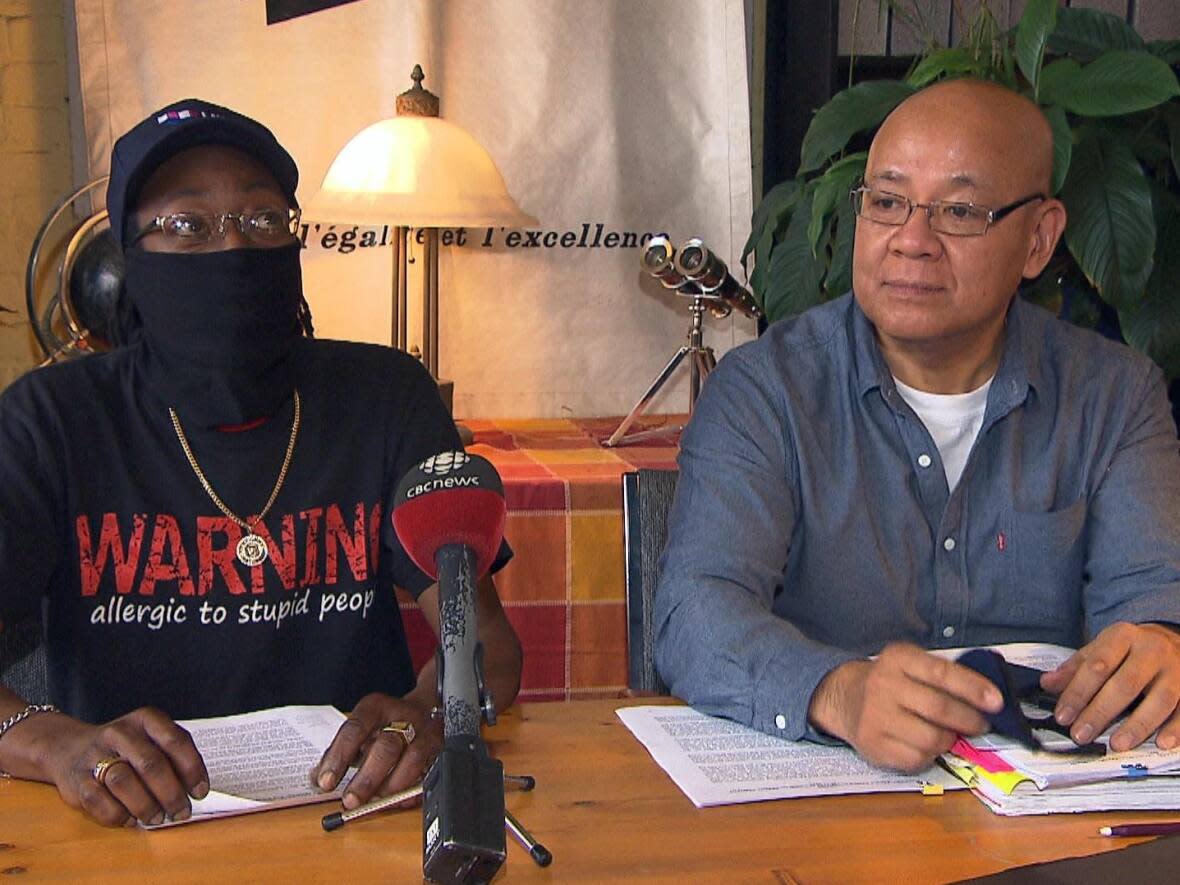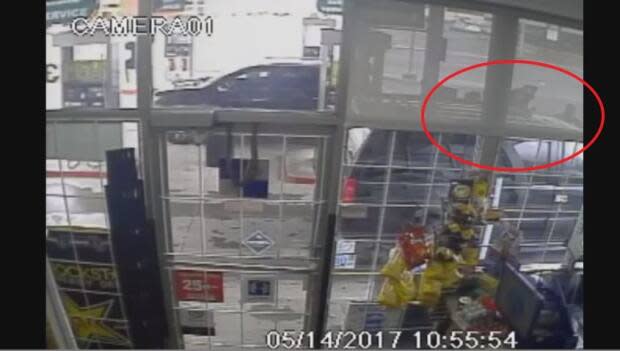Laval police officer violated ethics code by racially profiling, insulting Black man, committee finds

Quebec's police ethics committee has upheld six out of 12 complaints against a Laval police officer, including racial profiling, discrimination and filing a false police report.
Now the victim, a Black man, and an advocacy group are renewing calls for body and dash cameras.
The decision also serves as a reminder that officers in Quebec cannot delete somebody's video just because it recorded an interaction with police, said Fo Niemi, executive director of the Center for Research-Action on Race Relations (CRARR).
Pradel Content was 39 when he first filed the complaint with the police ethics committee over the incident that took place on May 14, 2017. More than four years later, he is finally breathing a sigh of relief.
"I'm glad the decision was mostly in my favour," Content said, but getting to this point hasn't been easy.
Content was driving on des Laurentides Boulevard when, according to the police report, Const. Michaël Boutin and his partner made a U-turn to check Content's plates. The report does not specify why they did this.
The police report says Boutin's partner ran the plate number and noticed Content was filming them with his cellphone.
But Content says he stopped at a gas station and got out of his car before he started filming with his phone. Boutin hopped out of his cruiser and rushed at Content, CRARR says in a statement.
The officer then slapped the phone out of his hands, violently threw him against his car, and proceeded to handcuff him without informing him as to why he was being arrested, CRARR says.
Racial profiling, false police reports
According to police, Content parked rapidly, quickly got out of his vehicle and kept filming while yelling and gesturing. Police ticketed Content for using a phone behind the wheel.
However, the ethics committee has since found Boutin violated Quebec's police ethics code by filing a report he knows to be false or inaccurate.
The committee found Boutin discriminated against Content and profiled him.
In its report, the committee says it found Content's testimony more reliable than the officer's when it came to a discussion about race.
During their interaction, Content mentioned he had lived in Florida, and Boutin said he must be happier in Quebec "because they shoot people like you there," the report says.

Such a statement violates the province's ethics code because it insults Content based on his race, the committee found.
Either way, the police had no reason to stop Content in the first place — and that is why the officer is also guilty of racial profiling, the report says.
Boutin also violated the ethics code by knocking Content's phone to the ground and deleting the video, the report says.
Hearings on possible sanctions for Boutin are expected to start next month.
Sticking to the truth
Erika Landry, a spokesperson for Laval police, told CBC on Friday that the police service takes note of the committee's decision and "will provide its full co-operation in the application of sanctions when they are determined."
"Integrity, respect and diversity are at the heart of the values of our service and guide our daily actions and our ongoing commitment to the Laval community," she said in an email.
Content said he stuck by the truth, while the officer "lied so many times, deleted my video. I am just glad I had the gas station footage."
That footage is what held his case against the officer together, he said. Otherwise, Content said, it would have been his word against Boutin's.
But the gas station footage only tells half the story, he said.
"If you were able to hear the audio of it. It's unbelievable," said Content on Friday during a news conference alongside Niemi.
"I will never feel safe until they have cameras in their cars."
He said he is glad his voice has been heard, but that's not always the case and that's why interactions with police need to be recorded.
'Never be afraid' of fighting for rights: Niemi
As long as an officer is being respectful and following the law, they should not be worried about being filmed, said Content.
"If I went to court and stated what happened, but did not have any footage, I would have lost," he said.
"It's a matter of protecting them, and protecting us. It goes both ways."
The surveillance camera footage reflected Content's testimony, and showed the officer's story was inaccurate, said Niemi.
This also speaks to the right to a citizens' ability to record an interaction with police and that officers do not have the right to delete a person's video, he said.
Niemi said Content has been targeted on several occasions and there are two other complaints pending against Laval police.
He said people should not be afraid of fighting, but it does take perseverance and determination. For Content, it started with winning his court fight against the ticket police issued him for allegedly using his phone while driving.
The judge threw the case out immediately, Niemi said.
"Never be afraid of delays, or any other barriers set up by the system to diminish your constitutional rights," he said.
For more stories about the experiences of Black Canadians — from anti-Black racism to success stories within the Black community — check out Being Black in Canada, a CBC project Black Canadians can be proud of. You can read more stories here.



